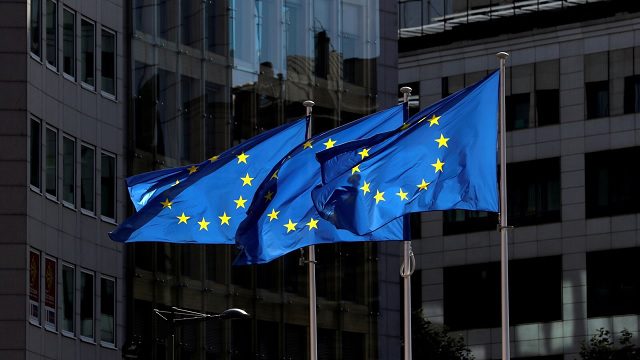The European Commission has compiled the text of the enlargement package and the progress reports for the countries of the Western Balkans, which are expected to be approved on October 12.
Radio Free Europe provided access to drafts of these documents, which are not expected to undergo major changes until their approval.
The Commission underlines that in the Western Balkans region, the change in global circumstances has had an impact, after the invasion of Ukraine by Russia, while it deals specifically with the economic situation there, the implementation of the European plan for investments in the Western Balkans, the European green agenda, plans for joint procurement of energy and the adaptation of the countries of this region to EU policies.
In the draft progress report for Kosovo, the country is singled out for some progress it has made, but, in most cases, progress is said to have been limited and that more work needs to be done.
Visa liberalization – “urgently”
In the political aspect, Kosovo is appreciated for adapting to the EU’s attitudes towards Russia’s aggression in Ukraine.
It is repeated that the European Commission remains in the position that Kosovo has fulfilled all the criteria for visa liberalization. There, it is also emphasized that there is a feeling that the Council of the EU should urgently deal with this issue.
As for the dialogue for the normalization of relations between Kosovo and Serbia, the draft report states that there were regular meetings in Brussels at the level of chief negotiators, while the meeting on August 18 between the leaders of both countries is also mentioned.
There is also mention of the agreement on the guide for the implementation of the energy agreements and on travel only with identity cards between Kosovo and Serbia. However, urgent commitment is required from both countries to reach a comprehensive agreement that would normalize relations between them.
“Kosovo should engage in a more constructive way and make other substantial efforts to implement all agreements reached in the past, as well as contribute to the achievement of a comprehensive, legally binding agreement for the normalization of relations with Serbia. Such an agreement is urgent and key to enable Kosovo and Serbia to advance in their respective European journey”, the draft report states.
“Weak” management of the legislative agenda
The Commission also emphasizes that “Kosovo has had political stability”, but does not positively assess the work of the Assembly of Kosovo.
“The work of the Assembly continues to be negatively affected by the polarizing political atmosphere and the difficulties to reach the necessary quorum for decision-making, despite the fact that the Government is based on a strong majority,” the document states.
This, according to him, happens because of the poor management of the legislative agenda, but also because, as it is said, the opposition MPs abstained from voting, to prevent the adoption of decisions.
The situation in the north of Kosovo, meanwhile, is assessed as “challenging”, in particular in terms of “corruption, organized crime and the conditions for freedom of expression”.
Regarding the fight against organized crime and corruption, it is said that Kosovo is still in “an early stage” and that “a kind of progress” has been achieved here.
But, as in previous years, progress is more in the adoption of decisions and the creation of the necessary frameworks. More work is required for their implementation.
Judiciary – “slow and inefficient”
The document also mentions the functioning of the judiciary, which is assessed as “slow, inefficient and susceptible to unnecessary influences”.
It is suggested to Kosovo that reforms in the judiciary should be carried out first by using the existing tools to preserve the integrity, independence and efficiency of the judicial system.
“The Government’s commitment to fully implement the opinion of the Venice Commission on the vetting of judges and prosecutors, in close cooperation with the EU, is welcome,” the draft report says.
Kosovo is also criticized for what the European Commission describes as “imposing restrictions on the export of a number of agricultural and food products, without justification and without consultation with the European Commission”.
It is also established that Kosovo has not yet ratified the supplementary protocol of CEFTA, for the facilitation of trade and services.
On the other hand, Kosovo is positively evaluated for the activity against radicalism and extremism. However, as a “matter of concern” the “early release on bail of violent extremists” is mentioned, while “more efforts are required to rehabilitate and reintegrate them”.
Serbia “marks a step back”
As for the other countries of the Western Balkans, they, more or less, face similar challenges.
The biggest criticisms are addressed to Serbia, which, according to the draft report, “marked a step back” in aligning its positions with the EU’s foreign policy, especially in the case of sanctions towards Russia, which Serbia continues to reject.
The document also mentions some figures, according to which, in 2021, Serbia has adjusted its attitudes to those of the EU at the level of 64%, while in August of this year it fell to 45%.
The document states that Serbia “with a number of statements and actions has gone against the EU” in foreign policy.
In the text of the enlargement package, it is stated that Russia’s aggression against Ukraine has caused, more than ever, the need to align the countries of the Western Balkans with the European Union.
“Geopolitical challenges, especially Russia’s aggression against Ukraine, have brought the EU and the Western Balkans closer together and increased the need for solidarity between each other,” says the draft enlargement package.
The European Commission annually approves the enlargement package and progress reports for each of the countries involved in this process.
The countries of the Western Balkans are at different stages in the enlargement process.
Montenegro has advanced the most and has opened all chapters of negotiations for EU membership. Serbia is in the process of negotiations, but this year, so far, it has not opened any new chapter.
Albania and North Macedonia started negotiations in July, while Bosnia and Herzegovina has applied for membership in the EU, but has not yet received a positive opinion from the European Commission for granting the status of a candidate country.
Kosovo is the only country in the Western Balkans region, which has not yet applied for EU membership.








